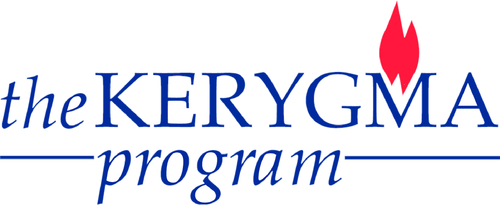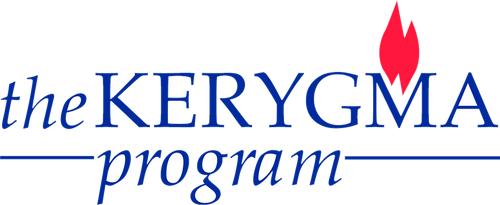Structure and Design
The two elements of an effective educational program are good study resources and a sound educational design. The primary problem of adult education in the church is not the lack of good teaching resources, but the absence of an effective structured program design. The Kerygma Program recommends proven strategies for developing and sustaining successful study groups and provides supplementary program resources to facilitate program administration.
The courses of study offered by The Kerygma Program answer a need for quality resources that are biblically solid and educationally sound. The proven strategies of its educational program design provide an answer to the challenges of involving adults in serious study.
A basic tenet of The Kerygma Program is that the structure and design of a Bible study experience is as important as the resources selected for study. When Bible study is offered in a manner that conveys a serious and responsible educational intent, registrations often exceed expectation and those who participate experience significant learning. The best model for a serious and responsible educational design is found in the academic world. There, courses are developed, scheduled, and promoted to meet the needs of potential students. Those who register pay a fee, purchase a text, complete homework assignments, attend regularly, and participate actively in the learning experience. Often upon completion of one course of study additional courses are pursued.
An analysis of the academic model suggests that a successful educational design requires a high level of commitment, planning, and administration by the institution offering courses of study. In a similar manner, a key element in establishing an effective program of adult Bible study in the church is a high level of commitment to adult education by the congregation and staff and responsible planning and administration. The Kerygma Program recommends that congregations develop an educational program design similar to the academic model. Many of the elements of that model are noted in the following section on planning.
A Comprehensive Adult Education Plan | The Kerygma Program
II. PLANNING FOR SUCCESSFUL STUDY GROUPS
Perspectives on Planning
The primary elements for planning a successful program together with a brief summary are listed below.
1. Administrative Responsibility.
Responsibility for the development of The Kerygma Program in the congregation should be delegated to a committee or task force. This group will oversee all dimensions of planning, program implementation, and evaluation. Its agenda should include a comprehensive analysis of the history and current status of adult Bible study in the congregation and a specific plan for implementation. The planning process should include a statement of purpose and the setting of objectives and goals.
2. Course Selection.
Each of The Kerygma Program study courses has a different purpose and function. Courses should be selected in the context of a long-range plan and offered according to the needs of the congregation. Among questions related to course selection are the following: Should one or more courses be offered? How many groups should be formed? Which course or courses should be offered first? In what sequence should additional courses be offered? How do Kerygma courses relate to other study opportunities in the church?
3. Scheduling. A principle widely accepted in the academic world is that successful registration requires scheduling that is related to the availability of potential participants. On this basis, schools and colleges are scheduling classes mornings, afternoons, and evenings throughout the week and on weekends. Increasingly, churches are discovering the value of scheduling to the availability of the people for whom the courses are offered. This may mean an early-morning schedule for some and an afternoon or evening schedule for others. It may also involve offering longer-term courses in shorter modules or on a biweekly basis. Once a definitive schedule is established it becomes a part of the promotion and registration process.
4. Leadership. Since Kerygma groups are led rather than taught, the knowledge and skills required of the Kerygma leader are different from those of a traditional Bible study teacher. It is essential for a good Kerygma leader to have the ability to read and understand biblical material and biblical reference books, to facilitate group learning experiences, and to have a commitment to study and prepare. Kerygma groups can be led by clergy, Christian educators or lay people. Team leadership is common. In a comprehensive program, an additional element is the selection and training of leaders.
5. Training. The Kerygma Program is committed to ongoing education and wants to support you in developing strong and effective Bible study in your congregation. Kerygma offers both webinars and workshops to aid in the training of leaders. With over 35 years of experience in the adult education field, we are equipped with the knowledge and experience to provide all the necessary tools to propel your Bible study to a whole new level.
6. Interpretation and Promotion. A key element in establishing successful study groups is a well-coordinated program of interpretation and promotion. The Kerygma Program offers a different style and approach to adult education and Bible study. It is important that people understand the scope and value of the courses of study offered and be encouraged to register.
7. Registration for courses of study is a very important element in establishing study groups. The registration process should include the following:
-
A registration card that lists the course title, schedule and a statement confirming that the person is committed to the regular preparation, attendance, and active participation
-
The purchase of a Resource Book
-
An optional registration fee in addition to the cost of the book. This may help defray the costs of the program
-
Comprehensive interpretation and promotion should be conducted well in advance of the start date. Besides the obvious information about schedule, cost, leadership, etc., it should also accomplish the following:
-
Point out that the course of study is offering a serious opportunity for significant learning
-
Emphasize that the purpose of the study is to learn; therefore, there is no assumption of previous study or knowledge about the Bible. No one will be embarrassed or put on the spot Consider using a variety of media to promote your chosen study:
-
An announcement on your church website or social media group, your own video promotional piece, posters, banners, bulletin announcements, special mailings, bulletin covers, brochures, announcements during worship, special-focus sermons, registration tables during fellowship hours and home interpretation meetings
-
Demonstration sessions scheduled in conjunction with a family night dinner, fellowship time, retreat or adult education event may also be useful
Flexibility. A basic principle of administration is flexibility. The Kerygma Program should be implemented in a manner that best meets the needs of your congregation. This fundamental principle of flexibility means that not only is there no “correct” model for congregational implementation, but there is also no “preferred” model. The right model is the design that will work best in your congregation. The implication of flexibility means that a committee or task force should review the needs and circumstances of your congregation and decide which study courses, in what setting, can best meet those needs. Flexibility will also affect the selection of scheduling (day, time of day, duration of course), leadership, and size and number of groups. Flexibility in The Kerygma Program means courses may be designed as follows:
-
Scheduled for one-, one and one-half, or two-hour sessions held weekly or biweekly
-
Scheduled for use in Sunday morning adult class time
-
Scheduled mornings, afternoons, or evenings, including weekends
-
Led by church staff or laity
-
Large or small in size
-
Held in the church or in homes
Think Big!Bring a seminary experience to your church usingThe Kerygma Program. -

